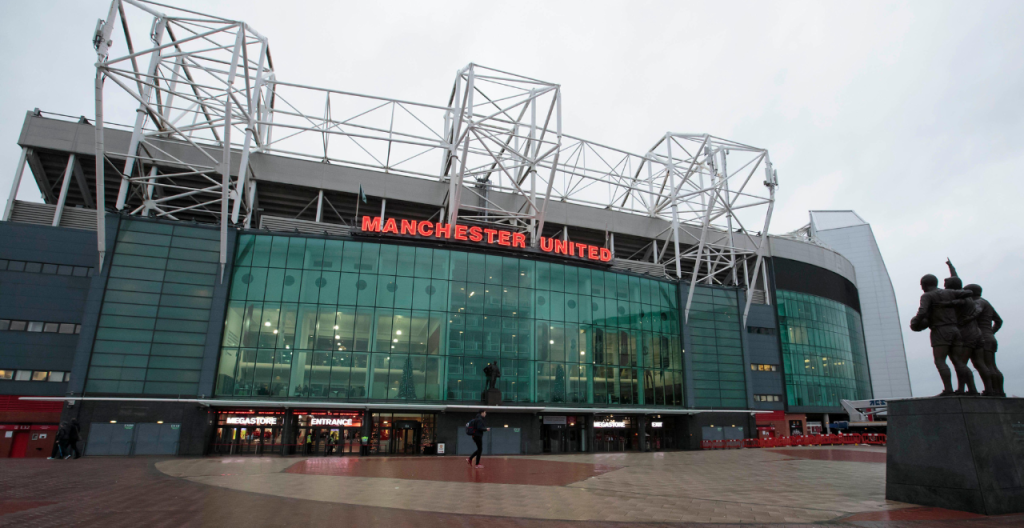
“I think we proved today that we can win any game in the Premier League.”
That was the message from Ruben Amorim, following Manchester United’s opening day defeat to Arsenal.
A week later, after their 1-1 draw with Fulham, the message from the Portuguese boss was similar. “I am really confident that we are going to get many wins,” Amorim told Sky.
Clearly, there’s one thing missing from all the theoretical talk about wins.
The actual wins.
Of course, even the harshest critic can acknowledge that being a Manchester United manager in the post-Ferguson era is an enormous challenge. Numerous high-quality coaches have already tried and failed. Hundreds of millions of pounds spent on players haven’t corrected their course. And meanwhile, Amorim carries the baggage of all those who have gone before him without managing to restore the club to the top table.
But even with the best will in the world, there’s a point rapidly approaching where we have to ask: how few wins can Manchester United sustain before a change of direction has to be considered?

*only managers with 10+ PL games included
Their Carabao Cup defeat to Grimsby Town is most certainly a damaging one, but the real measuring stick for Amorim has to be their performance in the Premier League. And in 29 games, Amorim has overseen just seven wins, along with seven draws and 15 defeats in the competition, landing him a win percentage of 24.1.
For some context, that is currently the same number as Neil Warnock recorded in his Premier League managerial career (24.1%). In fact, Warnock even posted higher win percentages in the competition than Amorim’s at Manchester United with two different clubs, doing so in charge of both Sheffield United (26.3%) and Cardiff City (26.3%). Both of those teams suffered relegations.
Take a look at the other names in the vicinity of Amorim’s on the Premier League win percentage table, and the picture remains equally bleak. Of the names slightly ahead of the Portuguese, you can find the likes of Paul Jewell (24.6%), Jesse Marsch (25%) and Paul Lambert (25.3%), among a core of coaches who spent most of their time in the competition fighting against the drop – many unsuccessfully.
The fact is that Amorim’s side have played 29 Premier League games to date – a number which constitutes 76% of a full campaign in a 20-team league – and won at the rate of a team that would finish in the bottom half in every season of the competition’s history.
So, you might be wondering, who have Manchester United actually managed to beat in the Premier League under Amorim?

A signature win away at Manchester City in December was the high point, and an unequivocally big one (albeit achieved in scarcely believable fashion). Victory over Aston Villa also looks good on paper, although when you consider that they won 2-0 with second-half goals scored against a 10-man opponent, a little less so.
Indeed, the clearer pattern is that four of their seven league wins have been achieved against sides no higher than 15th in the table, three of which were against newly promoted sides.
Readers perhaps won’t need reminding that Southampton, Ipswich, and Leicester combined to win just 59 points last season, which was the lowest ever total by promoted sides in a Premier League campaign.
If we exclude those matches played against sides promoted from the Championship, then Manchester United have only managed to win two of their last 21 Premier League games. And covering this period – since December 22nd – the Red Devils have both the fewest wins (2) and the lowest points-per-game ratio (0.57) against non-promoted sides of any team to appear in the last two top-flight campaigns.
Opta’s expected points model did have the Red Devils underperforming to the tune of around nine points last term, based on the quality of their performances. But whether you concur that Amorim’s side have been unlucky and deserved more than their results or not, there is no escaping their present reality.
Whatever building blocks might be in place, primed to emerge at some point down the line, will run into a problem of time if their return on results – regardless of accompanying performance or system adaptation – remains as it is.


Please remember to gamble responsibly. Visit our Safer Gambling section for more information, help and advice.


